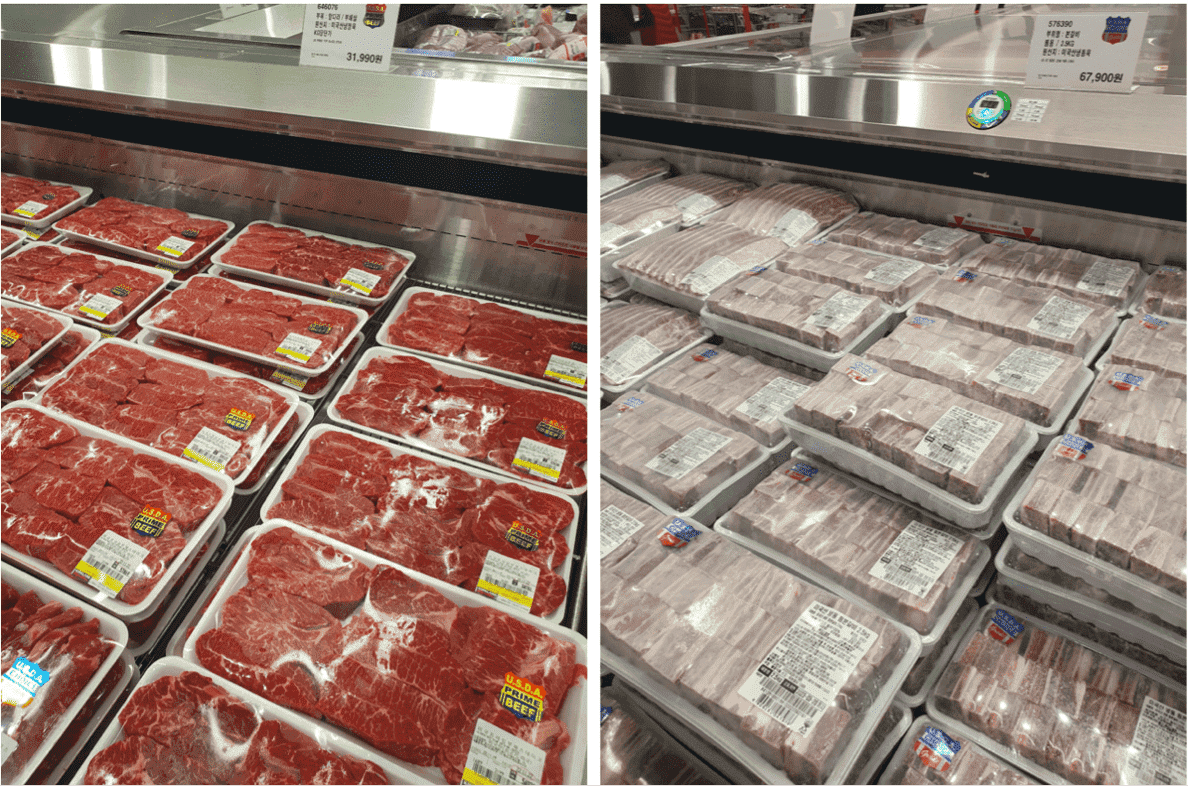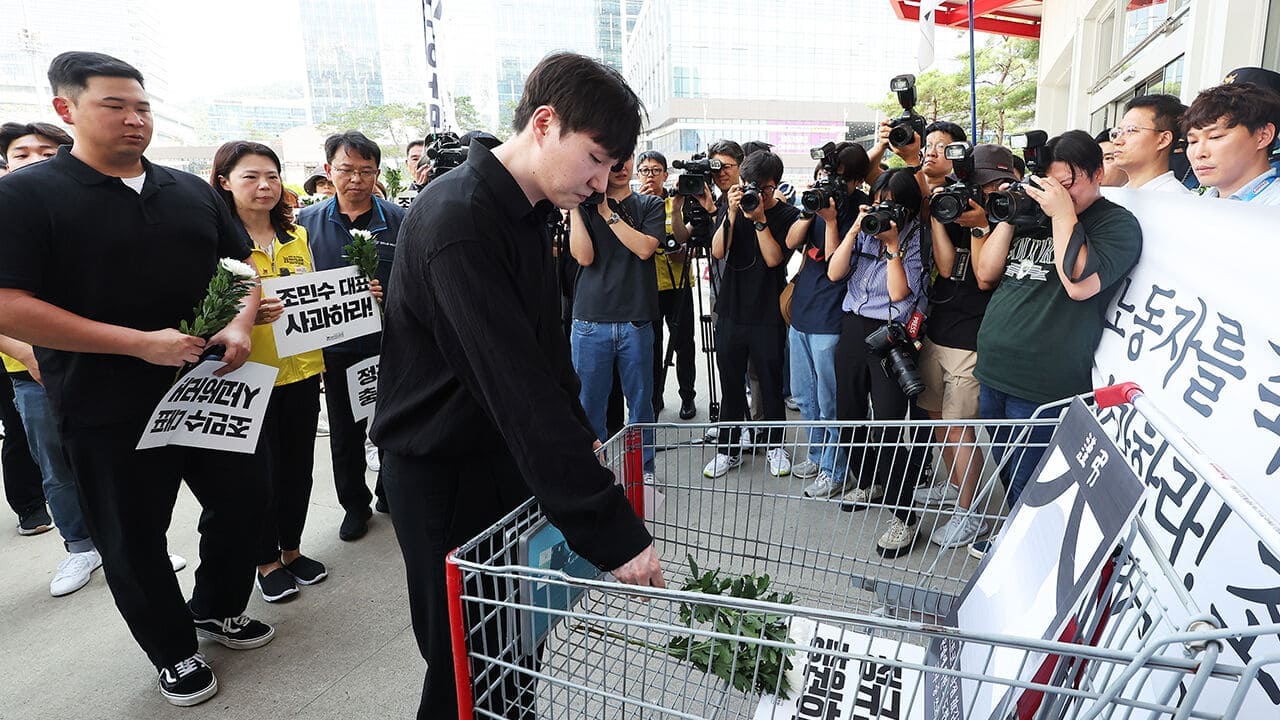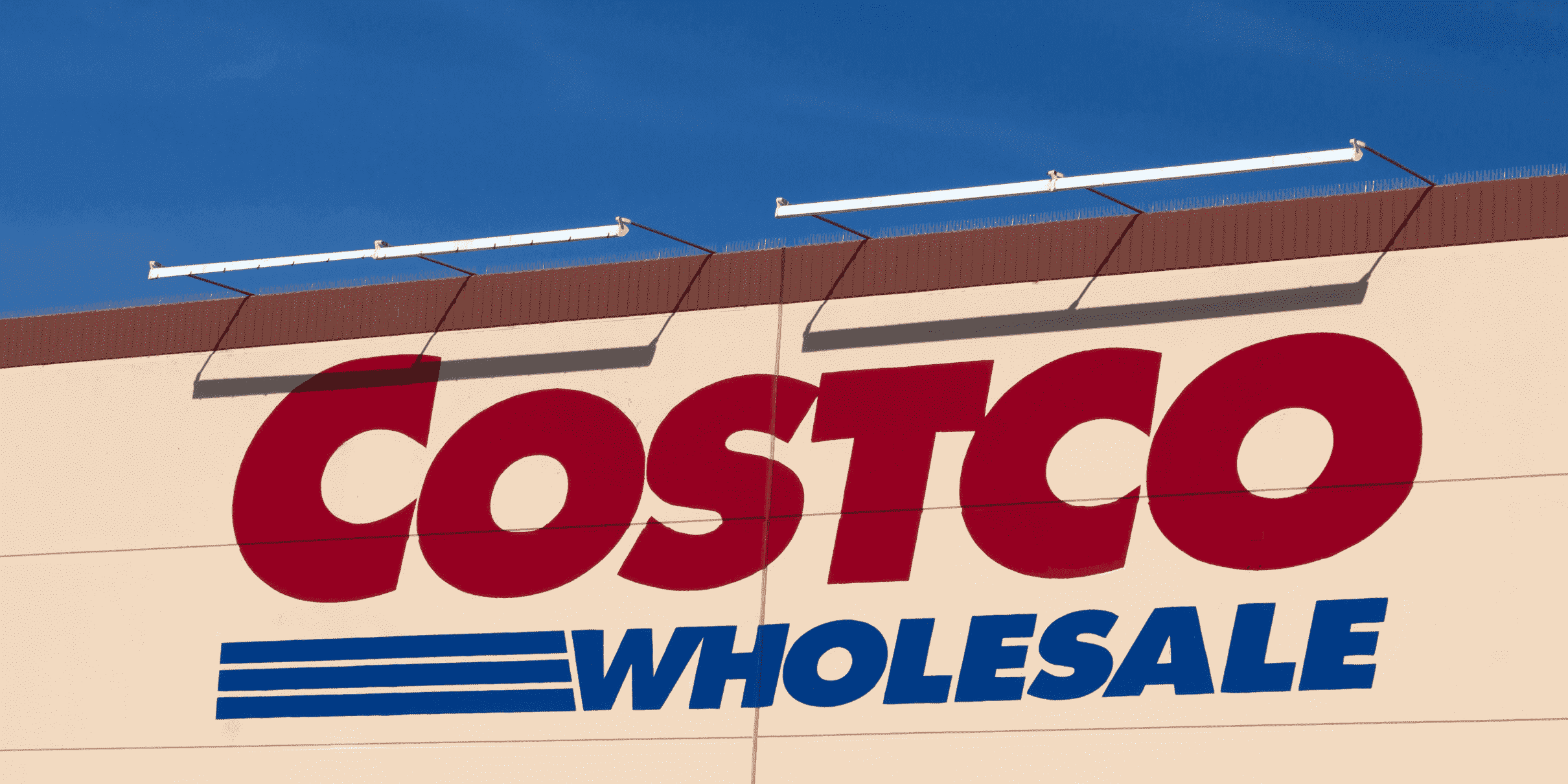The U.S. membership-only warehouse retailer Costco entered South Korea in 1994, under the name “Price Club”. “Price Club”, now Costco, introduced a membership-based warehouse club to the South Korean market through a strategic partnership with Shinsegae. In 1997 during the Asian Financial Crisis, Shinsegae had to close its warehouse location and transfer shares to Price Costco in the U.S., which later merged with Costco to become Costco Wholesale Korea. As of 2023, there are 18 Costco locations in South Korea, with various locations in major cities across the country.
Read our Korea’s MZ Generation report

While Costco in South Korea continues to experience growth, it is confronted with controversies that contribute to a negative public perception.
Costco in South Korea sets sales record, with bulk items appealing to small businesses
Costco’s presence in South Korea has experienced significant growth, as indicated by the recent audit report released by Costco Korea. The report highlights a remarkable achievement in the company’s sales for the fiscal year ending in August 2023, surpassing USD 4.6 million for the first time since its establishment. This notable milestone underscores Costco’s thriving success and increasing popularity within the South Korean market.
Despite its waning appeal among individual consumers, Costco continues to thrive among small businesses. By providing its members access to a wide range of bulk items at affordable prices, it establishes itself as an attractive retail destination for small businesses, including restaurants.
Despite Costco’s ongoing success with small businesses, it faces challenges due to declining interest from single-person households in Korea. This can be attributed to high living costs, a low fertility rate in South Korea, and a rising trend of individuals choosing not to marry. As a result, more Koreans are opting for solo living. This cultural shift is reshaping consumer preferences, diverting them from bulk orders to favoring smaller, more convenient purchases through e-commerce platforms like Coupang, Gmarket, and Emart.
Must-have exclusive deals for its members
Costco draws in a significant customer base primarily through its exclusive deals, presenting a unique shopping experience. The exclusive offers span a wide range of affordable premium meats, imported products, alcoholic beverages, skincare, and beauty products. Only those with a Costco membership have access to their offline and online retailers, creating an atmosphere of exclusivity that resonates with customers.
Online platforms, such as blogs and YouTube, serve as influential channels where consumers and influencers recommend “must-have” purchases from Costco. Such recommendations include Costco’s 2.7 kilograms seasoned bulgogi for USD 29 as well as premium steak for USD 24 per kilogram. These options prove to be more economical compared to those offered by Costco’s competitor, Emart. Emart, for instance, prices a similar seasoned bulgogi product at USD 80 for 2.7 kilograms and USD 31 per kilogram for premium steak.

Costco’s online expansion in South Korea
In a notable shift, Costco entered South Korea’s online retail landscape by launching its first online shopping platform, defying its traditional no-delivery stance. The company commenced free early morning delivery services for online orders over USD 40 in Seoul and Gyeonggi Province from late May of 2023, marking its debut in the morning delivery services in any of its global stores where e-commerce has become the norm in shopping. Partnering with CJ Logistics Corp., Costco competes with local e-commerce leaders like Kurly Inc. and Coupang Corp., offering a 20% discount on selected items for online shoppers. Costco’s entry into the dawn delivery market contrasts with Lotte Group’s recent withdrawal from this space, highlighting varying strategies among retail giants in response to evolving consumer trends.
Costco faces ethical controversies impacting public opinion
Costco has been grappling with several issues that have raised concern about the company’s ethical practices and business operations. Its dividend for the 2023 fiscal year stood at USD 155,512, almost triple from last year’s dividend payout of USD 55,129. Despite recording triple the payouts in 2023, the wholesaler’s charitable donations in South Korea has decreased to about USD 904.7 billion, reflecting an 8.1% decrease year-on-year. Decreasing social contributions deepened the growing negative perception of Costco in South Korea.
Additionally, it has come under fire for violating South Korean laws regarding workplace daycares. It has been criticized for being one of the 27 companies in Korea without an onsite daycare for its workers. Under South Korean law, companies with over 500 full-time employees or more than 300 female workers are required to operate a daycare center. As of 2023, Costco in South Korea employs 706 full-time workers, including 323 female workers.
In June 2023, the company also faced criticisms for the death of a cart pusher in his late 20s who was working outside a Costco outlet in Gwangmyeong during the extremely hot summer weather. This raised concerns about the working conditions at Costco and its ongoing issues with local regulations, which, coupled with the negative perception, pose a threat to future expansion plans in South Korea.

Costco’s negative impact on local South Korea businesses
Costco has faced criticism for opening its store in violation of South Korean laws. In a contentious move in September 2012, Costco opened on two Sundays, going against the laws that require big supermarkets to close two days a month. These laws are in place to safeguard smaller, local businesses by restricting large retailers from conducting business on the second and fourth Sundays of each month.
Furthermore, in 2019, Costco opened an outlet in 2019 in Hanam, Gyeonggi Province. The Ministry of SMEs and Startups had advised it to delay the store opening to consider its potential impact on nearby mom-and-pop stores. Despite this advisory and the subsequent imposition of about USD 38 thousand, Costco pushed ahead with the Hanam outlet’s opening.
Costco’s journey in South Korea: record sales, online expansion, and ethical controversies
- Costco in South Korea achieved record sales exceeding USD 4.6 million, reflecting significant growth and success in the South Korean market.
- Despite Costco witnessing a decline in individual customers opting for smaller orders through platforms like Coupang, it continues to draw in small businesses.
- Costco has expanded its online presence by launching a new platform and introducing initiatives such as dawn delivery services.
- The company has found itself entangled in various controversies, ranging from violations of workplace daycare laws to concerns about poor working conditions. These issues have contributed to a negative public perception of Costco.





